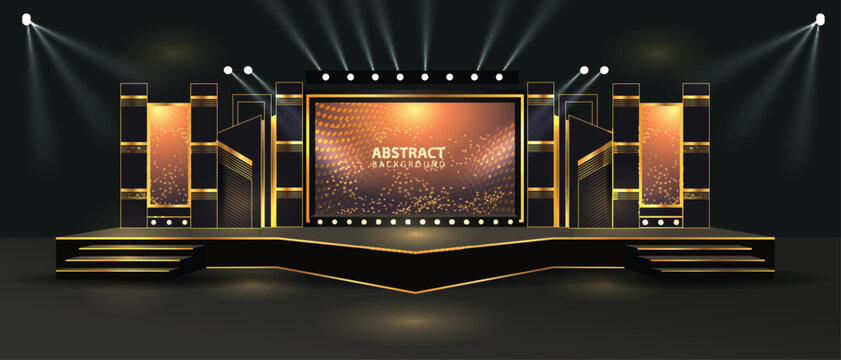When planning events that need high-quality visual displays, it’s essential to understand the differences between LED screens and traditional screens. This knowledge can influence event success, impact audience engagement, and help you choose the best display option for your needs. For those looking to amplify their events, companies like Rent For Event provide comprehensive AV solutions, including LED screen rental, to make visuals unforgettable. Here’s a detailed comparison to guide you in making an informed decision.
What Are LED Screens and Traditional Screens?
LED Screens: LED screens use light-emitting diodes to produce images directly. These screens are known for their vivid colors, brightness, and efficiency in displaying content clearly, even in outdoor settings. The ability to scale up to massive sizes makes LED screens popular for concerts, conferences, and events where visibility and clarity are essential.
Traditional Screens: Traditional screens refer to LCD (Liquid Crystal Display) or projector-based screens that depend on external light sources or backlighting to display images. Although less bright than LED screens, they’ve been widely used for smaller events and indoor settings where lighting is easier to control.
Key Differences Between LED Screens and Traditional Screens
1. Brightness and Visibility
LED Screens: Known for their superior brightness, LED screens stand out even in direct sunlight, making them ideal for outdoor events or spaces with high ambient light. With LED screen rental services, you can ensure that every corner of the venue experiences clear visibility, regardless of lighting conditions.
Traditional Screens: Traditional screens, especially those that rely on projection, are less suited for outdoor use. Brightness diminishes in well-lit areas, meaning images may appear washed out or faded under bright lighting.
Conclusion: For any event where brightness and visibility are priorities, LED screens are the clear winner.
2. Color Quality and Resolution
LED Screens: LED technology provides high color accuracy and vivid displays with millions of color combinations. LED screens are capable of high-definition (HD) and ultra-high-definition (UHD) resolutions, giving audiences a crisp, detailed viewing experience, even up close.
Traditional Screens: Traditional screens offer decent color quality but can struggle to match the vibrancy and definition of LED. Colors may not appear as lifelike or intense, and the resolution can suffer if the screen size is scaled up, particularly in projector-based setups.
Conclusion: LED screens outperform traditional options in color quality and resolution, creating immersive and visually stunning displays ideal for high-profile events.
3. Size Flexibility
LED Screens: One of the standout features of LED screens is their modular design. They can be assembled to fit nearly any size requirement, from small stage backdrops to massive outdoor video walls. Companies like Rent For Event can customize LED screen sizes for any event, ensuring maximum audience engagement.
Traditional Screens: Traditional screens, such as LCDs or projectors, are more limited in size options. While large screens are available, scaling up often comes at the cost of image quality or requires multiple screens to reach the same impact as a single, large LED screen.
Conclusion: LED screens offer unmatched flexibility in size, making them perfect for events where large displays are essential.
4. Energy Efficiency and Lifespan
LED Screens: LED technology is energy-efficient, producing less heat and reducing power consumption. This feature is beneficial for longer events, keeping energy costs down and ensuring long-term sustainability. Additionally, LED screens have a longer lifespan, especially compared to projector lamps that require frequent replacement.
Traditional Screens: Projector-based screens consume more energy, mainly due to the need for high-power lamps, which also heat up quickly. LCD screens are more energy-efficient than projectors but don’t match the lifespan or efficiency of LED screens.
Conclusion: LED screens are more energy-efficient and offer a longer lifespan, making them a sustainable choice for event planners.

Why Choose LED Screen Rental for Events?
Opting for LED screen rental offers many advantages, particularly for events that require dynamic visuals and audience engagement. Here’s why renting LED screens from companies like Rent For Event can elevate your next event:
1. Turnkey Solution for Seamless AV Production
LED screen rental services offer a turnkey solution that includes setup, maintenance, and breakdown, ensuring stress-free event execution. Rent For Event specializes in AV production, providing not only LED screens but also complete audio, video, lighting, and staging services. With everything covered, event planners can focus on delivering a memorable experience.
2. Nationwide Availability
Rent For Event’s LED screen rental services are available nationwide, making it convenient to host events in any of the 50 states without worrying about equipment logistics. This wide availability ensures that you have access to quality AV solutions wherever your event takes place.
3. Customization Options
LED screen rentals offer versatile customization options, including screen size, resolution, and brightness, to fit different event needs. Whether for an intimate indoor conference or an expansive outdoor concert, LED screens can be tailored to your specifications, ensuring that visuals are clear and engaging.
4. Cost-Efficiency
Renting LED screens can be more cost-effective than purchasing, especially for one-time or occasional events. With LED screen rental, you gain access to cutting-edge technology without the high upfront costs, making it a budget-friendly choice for events of all sizes.
Choosing Between LED Screens and Traditional Screens: Which Is Right for Your Event?
The choice between LED screens and traditional screens often depends on your event’s unique requirements. Consider these factors when making your decision:
- Event Size and Audience: For large audiences and spacious venues, LED screens offer unparalleled visibility and engagement, ensuring that even distant viewers can clearly see the content.
- Venue Type: For outdoor events or spaces with ambient light, LED screens are ideal due to their brightness and color clarity. Indoor events in smaller spaces with controlled lighting may work well with traditional screens, although LED remains a superior option.
- Budget Considerations: While LED screens may have higher rental costs, their benefits in terms of quality, visibility, and energy efficiency often outweigh the price, especially when working with a full-service company like Rent For Event.
- Content Requirements: If your event content requires high-definition visuals, such as a corporate presentation, concert visuals, or a sports broadcast, LED screens provide the resolution and color fidelity to do your content justice.
Final Thoughts: Why LED Screen Rental is a Smart Choice
When comparing LED screens to traditional screens, it’s clear that LED technology offers distinct advantages in brightness, color quality, size flexibility, and energy efficiency. Partnering with a reputable provider like Rent For Event gives you access to the latest LED screen rental technology, tailored to your specific needs, backed by professional AV production services.
Choosing LED screen rental means investing in a more vibrant, engaging, and versatile solution that ensures your event’s visual impact is unforgettable. With Rent For Event’s comprehensive support and equipment options, you can confidently create a visually compelling experience that will resonate with your audience, whether the event is indoors or outdoors, large or small.












Comments (0)